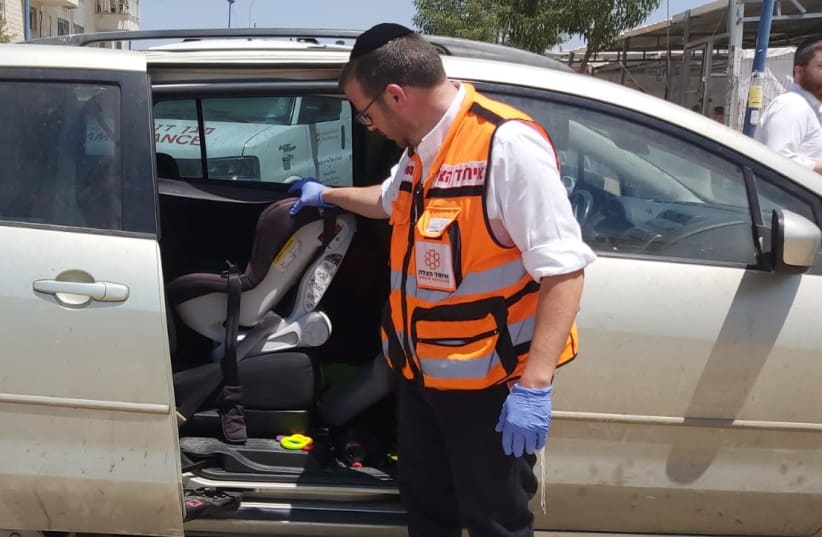The decision to postpone requiring the installation of a safety system to prevent children under the age of four from being forgottenin a car will cost lives, a representative of the Israel National Council for the Child (NCC) said, a day after Transportation Minister Merav Michaeli announced that the law would not come into effect on August 1 as planned, but rather 10 months later on June 1, 2022.
“We believe that this decision is wrong and puts lives in danger,” Liron Eshel, head of the council’s Children at Risk department said.
“Unfortunately, we have already seen how it might cost lives: Precisely while the minister communicated her decision, the death of a three-year-old girl was reported.”
Established in 1986, the NCC is an organization whose mission is “to ensure the welfare, well-being and rights of all children in Israel,” according to its website. Among its services, it offers assistance to children (and if relevant to their parents) for all issues relating to matters such as education, domestic violence and disability rights. In addition, the group promotes youth participation in policy making.
In the past decade, hundreds of children have been forgotten in the car, and close to 40 have died as a result of the heat, most of them in the summer, the organization said.
“We have participated in discussions on the topic at the Knesset for years,” Eshel said. “These new regulations were very important because they have the potential to save lives.”
Approved in March, the law would have demanded that a safety system be installed in a car for every child under the age of four that would alert the driver if a child was forgotten through an alarm or a notification on their smartphone. The enforcement was only scheduled to start in January 2022 – violators would have received a fine of NIS 250 and received four points on their driving record.
Critics of the law, however, said that the requirement would place an economic burden of hundreds of shekels on Israeli families – especially those with several young children. They also lamented the lack of competition from devices approved as safe to add to existing car seats – as opposed of buying new “smart” ones.
When a similar law was adopted by Italy last year, parents were offered a €30 coupon (about NIS 115) to buy the device.
In light of the debate about the measure after Michaeli took office last month, she instructed a team of experts to examine all aspects and opinions.
On Tuesday, the ministry announced that the regulation would come into effect next year and that the time would be used to examine alternatives to current options.
AMONG THOSE who welcomed the decision was Yad Sarah.
Established over 40 years ago to lend people medical equipment for free or at very limited cost, Yad Sarah currently runs over 100 branches across Israel, with thousands of volunteers, to provide a wide range of services.
“The important decision of the transportation minister does justice to hundreds of thousands of parents who cannot afford to purchase advanced systems,” its CEO Moshe Cohen said. “We call on the ministry to continue the campaign to promote awareness of the use of devices to prevent children from being forgotten in vehicles, and thus continue the trend testifying to a decline of such incidents in recent years.”
However, according to Eshel, the postponement was not the correct solution to the new provision’s weak points.
“We are aware of the challenges that the law presented, but we think that the days until the law was scheduled to come into effect could have been used to address them,” she said.
Eshel said that more solutions could have been authorized to enhance competition, and that possible tools of financial support could have been discussed with the Financial Ministry.
The issue has been discussed already for years in the Knesset.
“There is no question that the political instability has had a negative impact,” Eshel said. “But we should not forget that our children should not pay the price. They do not care if the government is left wing or right wing.”
The expert said it is not too late for the Transportation Ministry to reverse the postponement.
“We call on the minister to change her decision and to use all the time between now and August 1 to find new solutions,” Eshel concluded. “Delaying the regulation is not the solution and will cost children’s lives.”
